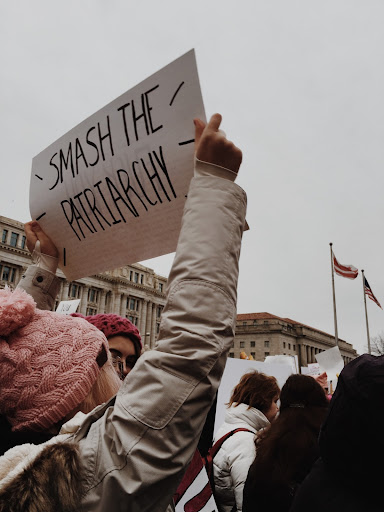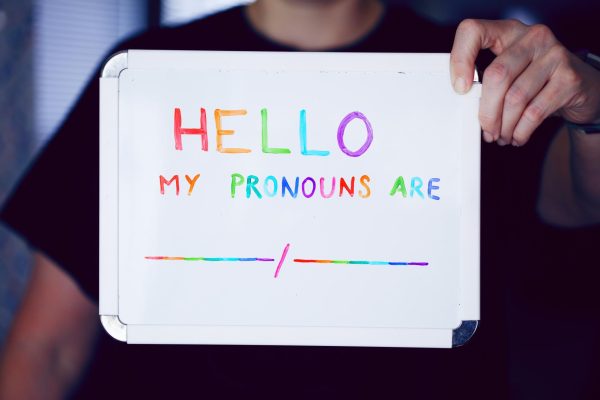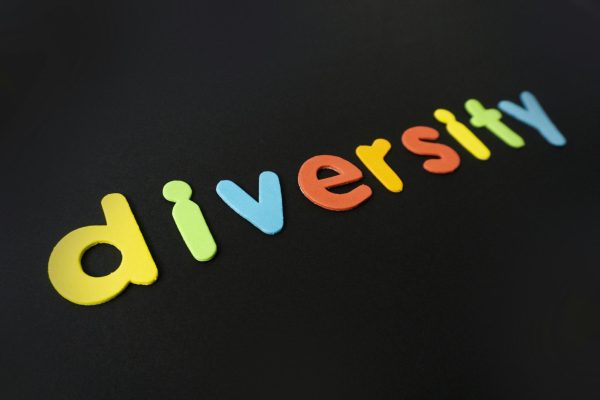Why Modern Feminism Matters Today

Photo courtesy of Unsplash.
“You’re not one of those crazy feminists, right?”
No, I am a crazy feminist if that entails believing in legitimate equal rights in politics and health care, academics, and careers.
In honor of National Women’s History Day and Month, I’d figure I’d write a piece on why feminism is still important in the modern world when many seem to believe women are “equal” and asking for too much.
I’m speaking strictly from my experience here, but I’m sick of people acting as if modern gender discrimination doesn’t still exist.
Women face discrimination every single day. I’m tired of hearing of my family member’s legitimate health concerns being brushed off as PMS or menopause. I’m sick of being diagnosed as an over-dramatic woman who probably just has “cramps and some hormones.”
Don’t even get me started on abortion; it is health care and should be treated as such. The disgusting anti-abortion laws that have recently been passed do not take into consideration any of the complications associated with pregnancy, including but not limited to rape, incest, and the health of the mother.
Even with stricter laws, childbearing people will still attempt to get abortions through illegal and unsafe measures.
American College of Obstetricians and Gynecologists released a study stating, “Women resort to unsafe means to end unwanted pregnancies, including self-inflicted abdominal and bodily trauma, ingestion of dangerous chemicals, self-medication with a variety of drugs, and reliance on unqualified abortion providers.”
The same study states that out of the 21 million women worldwide that obtain unsafe, illegal abortions each year, 13% of all maternal deaths result from these complications.
Modern feminism is needed because of these horrific facts on abortion and health care, as these are only a few examples of women being neglected in the medical world.
I wholeheartedly believe the saying that if men could get pregnant, there would be abortion clinics on every street corner. Not only that, there would be greater care taken during pregnancies, and I’m sure the number of deaths during childbirth would decrease.
So many people have an American-centric mindset—just because women are mostly equal here doesn’t mean most women worldwide have freedom.
There are women all over the globe experiencing sex-based violence, and there is a current cry for women’s rights in Iran.
Female genital mutation is a disgustingly violent based practice that still occurs in over 30 countries, often performed by no medical officials without proper anesthesia and medication. There is no way to get an accurate account of how many women experience this trauma, but the figure far exceeds 200 million.
This procedure is extremely harmful, leading to a series of health concerns such as chronic pelvic infections, urinary tract infections, and birth complications. There are no medical benefits for the procedure, and even when performed professionally in a sterile environment, it still has lasting damage and is a violation of human rights.
Not only that, women experience significantly higher rates of domestic violence, and when it’s reported, it often is not taken seriously until it is too late.
Inherinetly, domestic violence has been an institutionally-supported action, as spousal rape loopholes are still found today. Minnesota’s “Marital Rape” clause was not removed until 2019 after a woman’s ex-husband served less than 30 days in jail after he violently raped her, and she petitioned for a change.
Every single state in the U.S. had a marital exemption that would allow husbands to rape their wives without any fear of repercussions or legal pursuits until 1976. Domestic violence against women has almost been encouraged and romanticized without any significant care to challenge the status quo.
A study from the World Health Organization (WHO) found, “1 in 4 young women (aged 15-24 years) who have been in a relationship will have already experienced violence by an intimate partner by the time they reach their mid-twenties.”
The importance of modern feminism cannot be disregarded when only six of all 117 Supreme Court Justices have been female (four of whom are currently serving.) And the 17 Chief Justices? They’ve all been men.
In the U.S., women constituted only 23.7 percent of Congress, lower than the Parliamentarian average of 24 percent. Without a system of proportional representation and a lack of gender quotas in elections, the U.S. is falling behind other democracies in equal representation in the legislature.
Most of these statistics don’t even include the increased risk of violence and discrimination against POC or LBGTQ+ women. These demographics are already severely underrepresented in all fields.
The gender wage gap has barely narrowed over the last 20 years, with women still earning approximately 82% of men’s wages in 2022. No matter if women hold traditionally “lower-paying” jobs, there has not been a consistent effort to remove this barrier.
Women and minorities have spent centuries breaking the Glass Ceiling, working twice as hard to receive half the credit and recognition of men. Despite making up over half of the working population, a study has found that women only account for 29.1% of executive positions.
Let me break some common stigma: feminists don’t want better opportunities; they simply wish for equal rights, opportunities, and representation for all minorities. Feminists aren’t “bra-burning’’ radicals that want to overthrow the government; we simply want to dismantle gender inequality and the institutions that support it.
If you want to make a change in this world, you have to lead it. Stand up against misogyny when you see it and credit the women who nurtured this world.








Gavin Buckley • Mar 10, 2023 at 7:04 pm
Wow Liz, what an informative and impactful article. A lot of the stuff you mentioned I did not even know was going on. The statistics do not lie, and I’m glad you are bringing awareness to this subject.